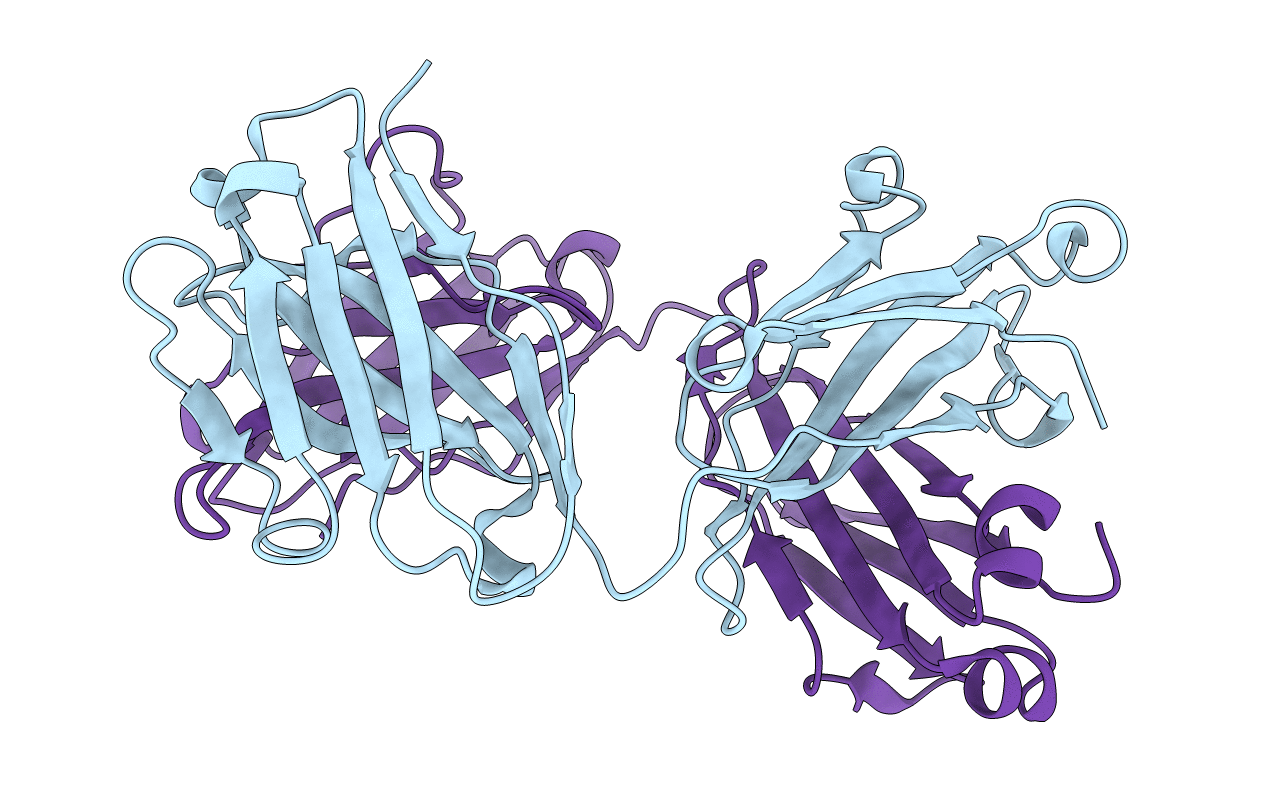
Deposition Date
2021-06-01
Release Date
2021-08-04
Last Version Date
2024-10-16
Entry Detail
PDB ID:
7N3E
Keywords:
Title:
Crystal structure of an anti-SARS-CoV-2 human neutralizing antibody Fab fragment C032
Biological Source:
Source Organism(s):
Homo sapiens (Taxon ID: 9606)
Expression System(s):
Method Details:
Experimental Method:
Resolution:
2.06 Å
R-Value Free:
0.22
R-Value Work:
0.19
R-Value Observed:
0.20
Space Group:
C 1 2 1


